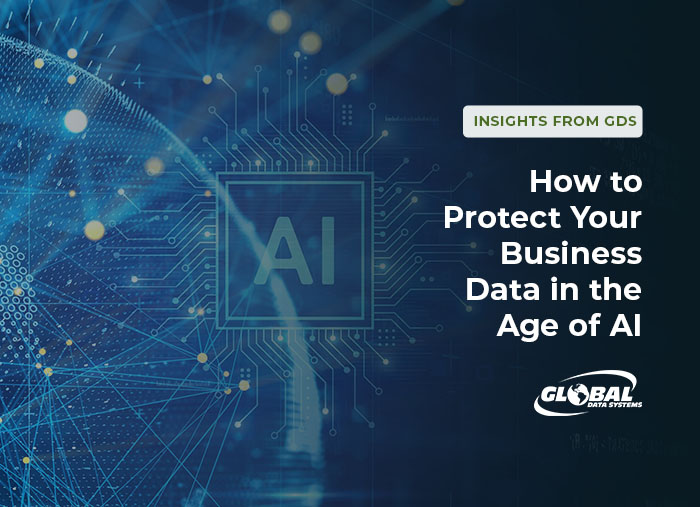How to Protect Your Business Data in the Age of AI
Artificial intelligence is transforming how companies operate — automating workflows, analyzing vast datasets, and driving innovation. But as AI adoption grows, so do the cybersecurity risks. Many organizations share sensitive information with AI tools without realizing that these platforms may retain, process, or even train on that data.

Protecting your business data in the age of AI requires the same discipline as any other cybersecurity challenge — plus an understanding of how AI systems handle information.
Why AI Introduces New Cybersecurity Risks
AI platforms — especially generative and cloud-based models — thrive on data. The more you provide, the more effective they become. However, that also increases exposure.
Some AI tools store input data on external servers or integrate it into their learning models. Proprietary business details, client information, and internal processes can end up outside your control — potentially accessible to third parties or competitors.
Without strong governance, AI can unintentionally create new attack surfaces and data-leak pathways.
Key Strategies to Safeguard Your Data
1. Classify and Control Sensitive Information
Start by identifying which types of data are safe to share with AI tools. Use data classification platforms like Microsoft Purview to tag, restrict, and monitor sensitive assets. Limit access based on business roles and enforce encryption policies.
2. Segment Networks That Interact with AI
Isolate systems that connect to AI platforms from mission-critical infrastructure. Network segmentation prevents a compromise in one area from spreading to your core systems.
3. Strengthen Endpoint Security
Deploy advanced endpoint protection tools such as Microsoft Defender for Endpoint. These solutions detect abnormal AI-related behaviors, suspicious downloads, or unusual API access patterns.
4. Educate Employees on AI Safety
Most AI data leaks originate from user error. Train your staff to recognize what’s safe to share with AI and what’s not. Reinforce policies around sensitive documents, credentials, and customer data.
5. Enforce Governance and Compliance Policies
Develop clear rules for responsible AI usage. Limit the use of public or consumer-grade AI tools and ensure all approved systems comply with standards such as HIPAA, NIST, and SOC 2.
The Role of Proactive Defense and Zero-Trust Architecture
AI expands the threat landscape, which means reactive security isn’t enough. Implement zero-trust access policies, risk assessments, and third-party audits to identify vulnerabilities before they’re exploited.
With GDS Secure Plus, you gain built-in safeguards like AI-aware traffic inspection, compliance reporting, and continuous 24/7 monitoring. Automated detection and response workflows ensure threats are caught and contained early.
Secure your business with GDS.
Contact Us >Build a Responsible AI Framework with GDS
AI can supercharge productivity — but only if your data remains protected. Global Data Systems helps businesses implement responsible AI strategies that combine productivity with protection.
We support your compliance goals, protect your endpoints, and provide visibility into every corner of your network.
Safeguard your data with AI-aware security. Contact GDS today to strengthen your cybersecurity posture and embrace AI safely.
Benefits of Managed IT Services from Global Data Systems
- Strategic Managed IT: We help you solve your technology related business problems.
- Connectivity: We get you reliable, secure connectivity anywhere in the western hemisphere in 48 hours.
- Support: When you need help simply call our 24x7x365 support number.
- Billing: Instead of managing hundreds of vendors - get one, easy to read bill from GDS.
Contact Managed Services Provider, Global Data Systems >
Get In Touch
310 Laser Lane
Lafayette, Louisiana 70507
Office Hours: Monday - Friday
8 a.m. - 5p.m.
Contact Us >
24 / 7 / 365 Support
Our dedicated support
staff are available by
phone 24 hours a day.
Phone: 888-435-7986

